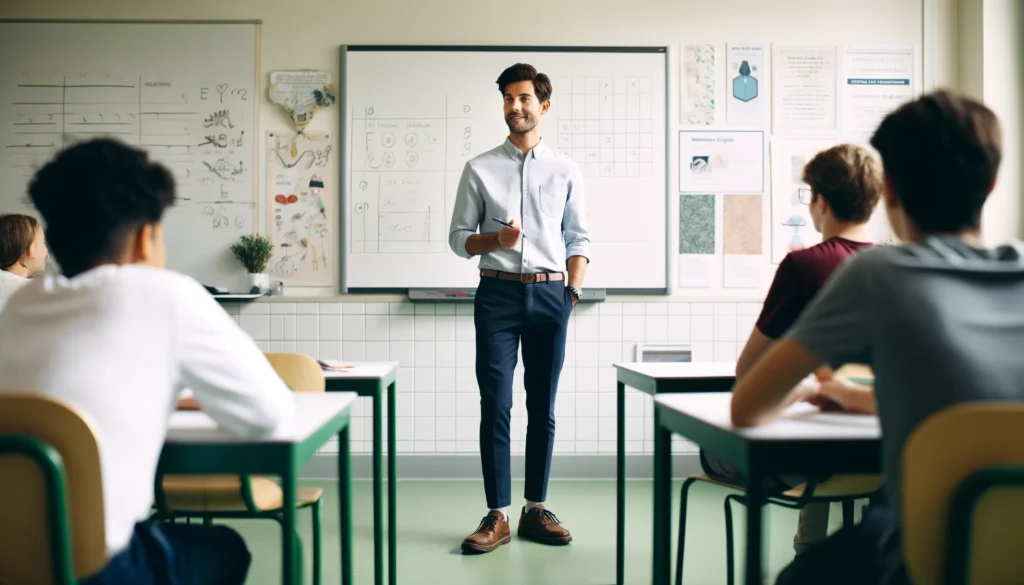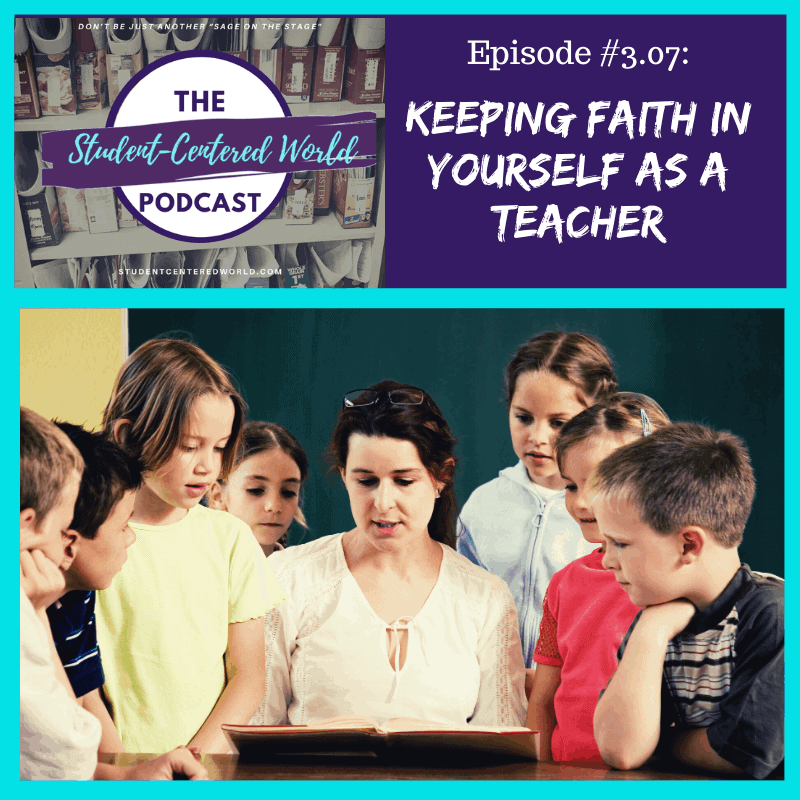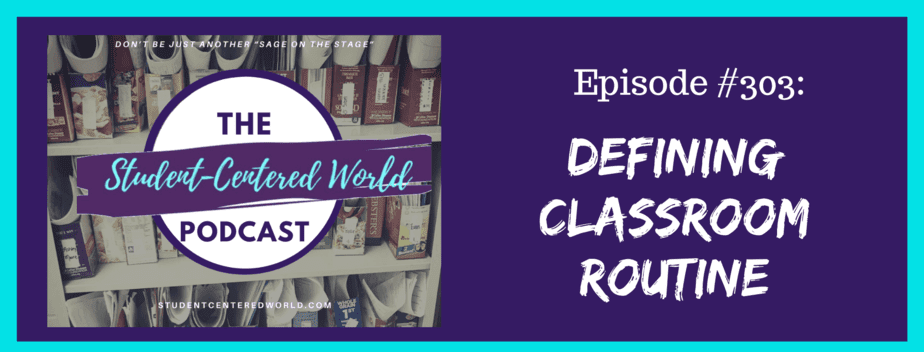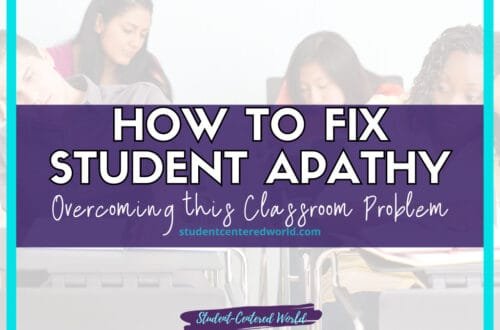How to Build Teacher Self-Confidence in the Classroom
Teaching is more challenging than ever, and maintaining teacher self confidence and self-belief is crucial. Often, teachers are their own worst critics and the person they listen to the least. This can lead to negative effects in both professional and personal lives. Building confidence is essential for becoming a more confident teacher and fostering a positive environment in the classroom.
Believing in Your Teaching Abilities
First and foremost, having faith in yourself as a teacher is vital. You chose this profession because you wanted to make a profound impact on young people. Even on the tough days, remember that you are a good teacher who loves helping students and seeing their achievements. This belief in yourself helps create a positive mindset, which is necessary for handling the challenges that come with teaching.

Embracing this positive mindset can transform your approach in the classroom, allowing you to foster a more supportive and encouraging environment for your students. It can also serve as a reminder of the difference you are making, motivating you to persevere through difficulties and continuously seek ways to improve your teaching practice.
Overcoming Imposter Syndrome for New Teachers
For new teachers, the beginning of your career can be daunting, and imposter syndrome may creep in. It’s important to recognize that everyone starts somewhere. Embrace a growth mindset and understand that building confidence takes time and experience. Celebrate small successes and use positive affirmations to reinforce your teaching abilities.
Seek out mentorship and support from experienced colleagues who can offer guidance and reassurance. Engage in professional development opportunities to enhance your skills and stay current with educational trends.
Remember that it’s okay to ask for help and that making mistakes is part of the learning process. Each challenge you overcome will contribute to your growth as an educator, gradually building your confidence and competence in the classroom.
Effective Classroom Management and Instructional Practices
Effective classroom management and instructional practices play a crucial role in boosting teacher confidence. Finding different ways to engage students and improve their academic performance can make a significant difference. Remember that even great teachers face bad days, but maintaining a positive attitude and focusing on your strengths can help you navigate these challenges.
It’s also beneficial to develop a repertoire of strategies that can address diverse student needs and learning styles. Reflect regularly on your teaching practices and be open to experimenting with new methods to see what works best for your classroom. Building strong relationships with your students can also enhance engagement and create a more cohesive learning environment. By continuously refining your approach and staying adaptable, you can foster a more effective and enjoyable teaching experience for both you and your students.
Positive Self-Talk and Visualization Practice
Positive self-talk and visualization practice are powerful tools for building self-confidence. By regularly reminding yourself of your abilities and visualizing successful outcomes, you can develop a stronger sense of self-confidence. This type of confidence not only benefits you but also positively impacts student confidence and their overall learning experience.
Setting achievable goals and acknowledging your progress can reinforce your belief in your capabilities.
Engage in mindfulness or meditation practices to center yourself and reduce stress, which can further enhance your confidence. Surround yourself with a supportive network of colleagues, friends, and family who encourage and uplift you. By nurturing a positive inner dialogue and visualizing your success, you create a resilient mindset that can withstand challenges and inspire both you and your students.
Creating a Positive Learning Environment
Creating a positive environment in the classroom is essential for fostering student engagement and prosocial behavior. Your belief in your students’ potential can boost their self-esteem and encourage them to strive for excellence. A teacher’s confidence in their students can lead to better academic performance and a more supportive learning environment.
Additionally, implementing collaborative activities and promoting a growth mindset can help students feel valued and motivated. Recognize and celebrate their achievements, no matter how small, to reinforce their sense of accomplishment. Establishing clear expectations and providing constructive feedback can also guide students toward success. By creating an inclusive and encouraging atmosphere, you empower students to take ownership of their learning, develop resilience, and build positive relationships with their peers.
Self-Care and Professional Development
It’s important to take care of yourself to maintain your confidence. Managing stress levels and finding time for self-care can help you stay focused and motivated. Surround yourself with supportive colleagues and seek out resources that can provide an instant confidence boost. Engaging with professional development opportunities, even if it’s as simple as watching a TED Talk or reading a series of articles, can also help you grow as an educator.
Make sure you’re also prioritizing activities that bring you joy and relaxation outside of work, whether it’s a hobby, exercise, or spending time with loved ones. Practice setting boundaries to ensure you have the necessary downtime to recharge. Remember, a well-balanced life contributes to a positive mindset, which directly impacts your effectiveness and enthusiasm in the classroom.

Taking care of your physical and mental health is crucial for sustaining long-term confidence and passion for teaching. Ensure you are getting adequate sleep, eating a balanced diet, and incorporating regular physical activity into your routine to maintain your overall well-being. Additionally, practice mindfulness techniques such as meditation, deep breathing exercises, or yoga to help manage stress, maintain emotional balance, and avoid teacher burnout.
Don’t hesitate to seek professional support, such as counseling or therapy, if you find yourself feeling overwhelmed. Building a strong support system of friends, family, and colleagues can also provide emotional sustenance and a sense of belonging. By prioritizing your health, you create a solid foundation that enables you to remain energetic, positive, and resilient in the face of the demands of teaching.
This holistic approach to self-care will not only benefit you but will also enhance your ability to inspire and support your students effectively.
Recognizing Your Impact and Positive Traits to Build Teacher Self Confidence
Recognize the impact of your work and the positive traits you bring to the classroom. At the end of the day, your dedication to helping students succeed makes a difference. By focusing on building self-confidence and maintaining a positive mindset, you can overcome any negative remarks or challenges that come your way.
Reflect on the progress your students have made and the unique contributions you have brought to their educational journey. Keep a journal of positive feedback and memorable moments to remind yourself of your successes and the value you add to your student’s lives.
Engage in regular self-reflection to identify your strengths and areas for growth, and use this insight to continually improve. By acknowledging and celebrating your achievements, you reinforce your self-worth and sustain your motivation, ensuring you remain resilient and effective in your teaching role.
Learning from Veteran Teachers and Charismatic Adults
Veteran teachers and charismatic adults in your school community can be great sources of inspiration and support. Learn from their experiences and apply their insights to your own teaching practice. Remember that collective teacher efficacy—when teachers believe in their collective ability to positively affect students—is a powerful force for improving student outcomes. Engaging in collaborative planning and sharing best practices with your colleagues can enhance your teaching strategies and classroom management skills.
Participate in professional learning networks online or in other teacher communities to foster a sense of camaraderie and mutual growth. By leveraging the wisdom and support of your peers, you not only enhance your own practice but also contribute to a culture of continuous improvement and excellence within your school. Embrace the power of teamwork and collective effort to create a more dynamic and effective learning environment for your students.
Reflecting on Success and Setting Goals
By taking deeper breaths and reflecting on your own successes, you can strengthen your teaching abilities and become a better teacher. Encourage a positive environment for your students, use positive affirmations, and focus on the small things that contribute to your growth as an educator. With conscious effort and a clear idea of your goals, you can build the confidence needed to succeed in your teaching career.
Maintaining faith in yourself as a teacher and focusing on building self-confidence is essential for creating a positive learning environment and achieving your greatest impact. Embrace a growth mindset, celebrate your achievements, and continuously seek ways to improve your teaching practice. By doing so, you will inspire confidence in your students and foster a love for learning that lasts a lifetime.
Stop Driving the Teacher Struggle Bus
Are you struggling with student engagement, apathy, or keeping your class on track?
💫💫 There’s hope! 💫💫
If you’re ready to take the first step towards reviving student engagement and transforming your classroom, I invite you to join me for my free workshop “Reversing Student Apathy” designed to equip educators with innovative strategies that work.
This interactive workshop will provide an invaluable opportunity for educators to explore the complex factors contributing to student apathy. By examining underlying causes and discussing broad strategies, participants will be equipped to make meaningful changes in their teaching methods. The sessions are designed to be engaging and collaborative, allowing educators to share experiences and develop a collective approach to overcoming challenges in student engagement.
The workshop will also emphasize the importance of community and network building among educators. Participants will be encouraged to connect with one another, sharing insights and strategies that have been effective in their own classrooms. This network will serve as a continued resource, offering ongoing support as educators implement new tactics to inspire their students.
Highlights of the workshop include:
- A deep dive into the roots of student apathy and its impact on learning.
- General strategies for enhancing classroom dynamics to better engage students.
- The role of educator-student relationships in fostering a more inviting and interactive learning environment.
- Broad discussions on integrating innovative approaches to teaching that resonate with today’s students.
Each educator attending the workshop will gain access to a variety of general resources aimed at enriching the educational experience. Furthermore, an online community will be available for post-workshop engagement, allowing for sustained collaboration and support among peers.
This workshop is an excellent fit for teachers, administrators, and educational professionals who are passionate about reversing the trends of student disengagement and nurturing a more dynamic and responsive educational atmosphere. It presents a unique chance to join forces with like-minded professionals determined to make a significant impact on the academic and personal lives of their students.
As we strive to address these pressing challenges, the workshop offers a platform to unite and empower educators from diverse backgrounds. Registration is essential as spaces are limited, ensuring a focused and productive environment for all participants.
Don’t miss this chance to be part of a pivotal movement in education. Please register today and be part of the solution, helping to reignite enthusiasm and engagement among students and setting them on a path toward a more successful and fulfilling academic experience. Join us as we take proactive steps toward a brighter educational future.
This article was originally published on December 19, 2020






